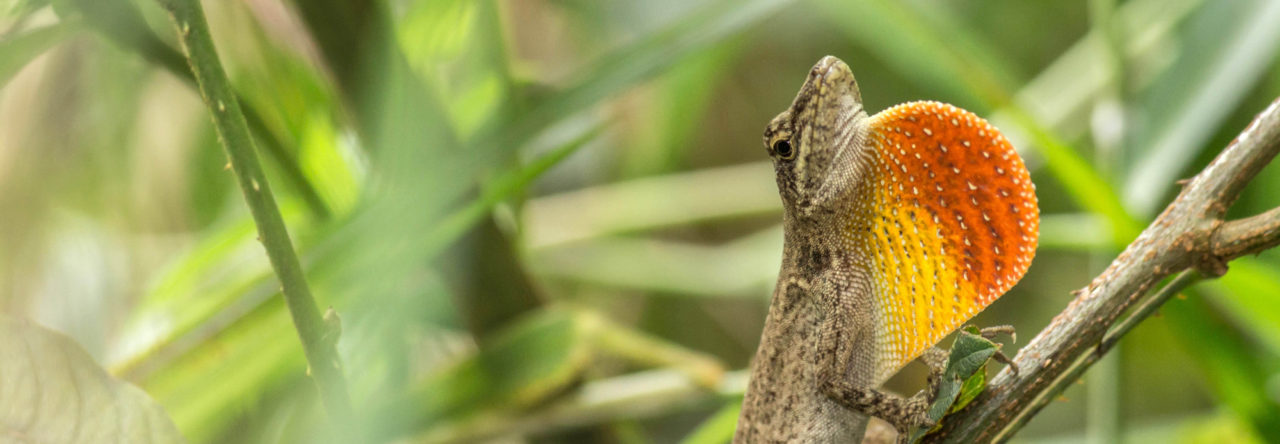Reduced host fitness and impaired immune functions are some of the most well-known consequences of parasitic infections. However, some parasites play important ecological roles by influencing their host’s populations and community composition. In eastern Caribbean islands, the malaria parasite Plasmodium azurophilum has been suggested to mediate competition and determine distribution patterns on some anole species. In Puerto Rico, P. azurophilum is known to infect at least five Anolis species – its main host being the yellow-chinned anole (Anolis gundlachi).
David Clark, a master’s student at the University of Puerto Rico – Río Piedras Campus, along with his research mentor (Dr. Miguel A. Acevedo), assessed the negative ecological consequences of P. azurophilum infection on A. gundlachi within the Luquillo Experimental Forest in eastern Puerto Rico. They quantified this by measuring body condition, dewlap size and site fidelity, all of which were exclusively measured in male anoles, as these are the most often infected by P. azurophilum. Moreover, to determine if infected individuals perform worse after a major disturbance event, the body condition was measured again after Hurricane Maria. They used the residual index for body condition, which is calculated using the regression of the log weight and log size. Dewlap size was measured by taking photos of anoles with their dewlaps extended and calculating the area in ImageJ. To diagnose the presence of P. azurophilum infection, blood samples were collected and then examined using a light microscope under oil immersion. Finally, to examine movement patterns and quantify the site fidelity of male individuals, they conducted a mark-resight study within the forest. For statistical analysis they performed linear regression for body condition and dewlap area, and log-linear regression for distance moved.

Tagged male Anolis gundlachi (a) and Plasmodium under oil immersion (b, c & d) (Image by David Clark)
David and Miguel found that P. azurophilum infection did not influence the site fidelity of A. gundlachi males, and that infected individuals tend to exhibit slightly larger dewlaps. The presence of this malaria parasite did not seem to negatively influence body condition before Hurricane Maria. However, their results show that after this major disturbance, body condition was better for infected anoles, suggesting that these individuals are more tolerant to disturbance conditions than the uninfected ones. All in all, no evidence was found to suggest that P. azurophilum infection has negative consequences on the ecological factors assessed here on A. gundlachi. David and his team are currently performing experimental competition trials to assess intraspecific interactions between infected and uninfected yellow-chinned anoles, as well as immunological studies to determine immune responses to infection. Future studies could possibly bring light on the ecological consequences of interspecific interactions between Puerto Rican anoles infected with malaria parasites.




Leave a Reply